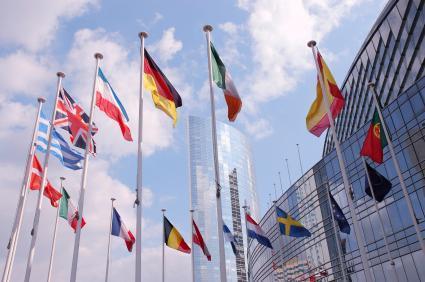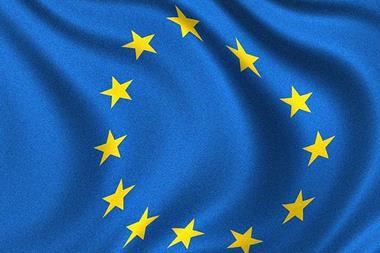Proposals include reducing VAT regimes, end unjustified geo-blocking and a free-flow data initiave

Today, the EU adopted its Digital Single Market Strategy.
The strategy is built on 26 key actions under three pillars (see below).
Commissioner for the Digital Economy and Society Günther H Oettingersaid: ”Europe has strengths to build on, but also homework to do, in particular to make sure its industries adapt, and its citizens make full use of the potential of new digital services and goods. We have to prepare for a modern society and will table proposals balancing the interests of consumers and industry.”
Pillar I: Better access for consumers and businesses to digital goods and services across Europe
Proposals include:
1. rules to make cross-border e-commerce easier. This includes harmonised EU rules on contracts and consumer protection when buying online.
2. to enforce consumer rules more rapidly and consistently by reviewing the regulation on consumer protection co-operation.
3. more efficient and affordable parcel delivery. Currently 62% of companies trying to sell online say that too-high parcel delivery costs are a barrier.
4. to end unjustified geo-blocking – a practice whereby online sellers deny consumers access to a website based on their location or re-route them to a local store with different prices. Such blocking means that, for example, car rental customers in one particular EU country may end up paying more for an identical car rental in the same destination.
5. to identify potential competition concerns affecting European e-commerce markets.
6. a modern, more European copyright law.
7. a review of the Satellite and Cable Directive to assess if its scope needs to be enlarged to broadcasters’ online transmissions and to explore how to boost cross-border access to broadcasters’ services in Europe.
8. to reduce different VAT regimes so that sellers of physical goods to other countries also benefit from single electronic registration and payment and with a common VAT threshold to help smaller start-ups selling online.
Pillar II: Creating the right conditions and a level playing field for digital networks and innovative services to flourish
Proposals include:
9. overhaul of EU telecoms rules to achieve more effective spectrum co-ordination, and common EU-wide criteria for spectrum assignment at national level; creating incentives for investment in high-speed broadband; ensuring a level playing field for all market players, traditional and new; and creating an effective institutional framework.
10. review the audiovisual media framework, focusing on the roles of the different market players in the promotion of EU works (TV broadcasters, on-demand audiovisual service providers, etc.). It will as well look at how to adapt existing rules (the Audiovisual Media Services Directive) to new business models for content distribution.
11. analyse the role of online platforms (search engines, social media, app stores, etc) in the market. This will cover issues such as the non-transparency of search results and of pricing policies, how they use the information they acquire, relationships between platforms and suppliers and the promotion of their own services to the disadvantage of competitors – to the extent these are not already covered by competition law. It will also look into how to best tackle illegal content on the Internet.
12. reinforce trust and security in digital services, notably concerning the handling of personal data. Building on the new EU data protection rules, due to be adopted by the end of 2015, the e-Privacy Directive will be reviewed.
13. propose a partnership with the industry on cyber security in the area of technologies and solutions for online network security.
Pillar III: Maximising the growth potential of the digital economy
Proposals include:
14. a ’European free flow of data initiative’ to promote the free movement of data in the EU. Sometimes new services are hampered by restrictions on where data is located or on data access – restrictions that often do not have anything to do with protecting personal data. This new initiative will tackle those restrictions and so encourage innovation. A European cloud initiative will also be launched, covering certification of cloud services, the switching of cloud service providers and a “research cloud”.
15. define priorities for standards and interoperability in areas critical to the Digital Single Market, such as e-health, transport planning or energy (smart metering).
16. support an inclusive digital society where citizens have the right skills to seize the opportunities of the Internet and boost their chances of finding a job. A new e-government action plan will also connect business registers across Europe, ensure different national systems can work with each other, and ensure businesses and citizens have to communicate their data only once to public administrations, which means governments no longer making multiple requests for the same information when they can use the information they already have. This “only once” initiative will cut red tape and potentially save about €5bn per year by 2017. The roll-out of e-procurement and interoperable e-signatures will be accelerated.




















No comments yet